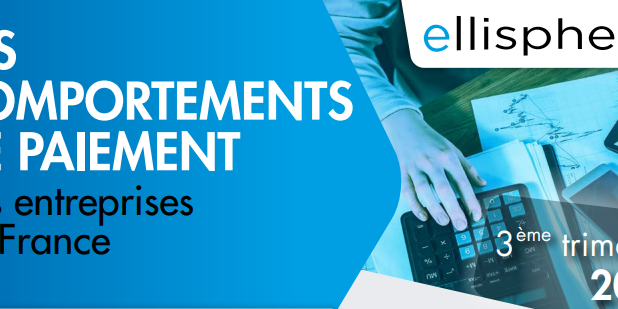Interview
Meeting with Jean-Luc Izoard, Administrative and Financial Director of Artémis, holding company of Ellisphere, to discuss the challenges of tomorrow for the CFO function

Let's talk about the future of the CFO function. What are the major challenges facing the CFO function tomorrow?
The major challenges? Undeniably, the digital transformation, and its acceleration. The challenge will be particularly important for companies that have not yet initiated this evolution, which is inevitable. As far as Ellisphere is concerned, as we mentioned in our first interview, the digital transformation has been underway for a long time. We are now clearly in the acceleration phase, which has been greatly helped by the current health crisis and the periods of containment.
It is clear that a finance department will increasingly need to be able to source, analyze and monitor larger and larger volumes of data, well beyond the needs of the finance function alone.
Obviously, teams have been handling financial data and producing reports for a long time. What is new is the increase in the volume of data received and used, as well as the multiplication of sources of this information, both internal and external to the company. Data exchanges between business partners are becoming more voluminous. Finance departments are therefore more confronted with the influx of information. As a result, they must develop their skills in new tools and new ways of working.
For example, in the past, a finance department worked mainly with Excel; it was the master tool of the employees. This tool is now gradually being replaced by new ones such as Business Objects, QlikView, or Qlik Sense.
At Ellisphere, this evolution, which is already underway, allows us to analyze larger masses of data, both financial and non-financial (commercial, production, etc.). Our department has thus become a key player in feeding and building the company's strategy. It offers more effective decision-making tools, enabling faster decision-making. This is a concrete response to a key issue in the company's long-term development.
The second, much more operational challenge is robotization. We are talking about digitalization, but we are also moving towards the robotization of financial processes. Here again, at Ellisphere, we have a head start. Robotisation has enabled us to transform low value-added functions, such as invoice processing, as soon as they are integrated into our information systems. Robotisation undeniably reduces the risk of error, and also the processing time, which makes it possible to streamline the activity within the teams, and thus to concentrate our employees on tasks with higher added value, such as control and analysis.
The robotization of accounting and financial processes is going to impose itself on all finance departments. In this sense, won't tasks with higher added value, even strategic ones, also be automated in the long term with the contribution of Artificial Intelligence and machine learning?
Maybe, but we are really not there yet. And who will these machines talk to? To date, it is humans who analyze, produce, and with a lot of intelligence! And it is on the basis of their work that many decisions are taken.
New technologies will provide us with increasingly sophisticated tools. Artificial Intelligence will help us in very advanced decision-making processes, particularly in the prevention of credit and fraud risks, that's obvious.
However, I believe that at some point, human intervention will always be essential, even predominant. It is still humans who run companies, who work in them, who make them live.
How can we meet the new challenges of transparency linked to CSR imperatives in particular? How can we promote a virtuous circle in the economy and implement it on a daily basis?
We are now at the heart of a crucial issue, one of the most important ones that we face. Especially since Corporate Social Responsibility (CSR) issues go far beyond the financial department.
The company will have an important role to play in CSR. It will have to be able to guarantee that it and its business partners are viable and reliable, both from an economic and financial point of view and from an extra-financial point of view. This is what we are already doing at Ellisphere.
In the future, financial departments will be required, in addition to producing financial and operational reports, to prepare extra-financial reports with new indicators that will measure the company's performance on social, environmental and governance issues.
These extra-financial elements will therefore be taken into account in the evaluation of a company. In this respect, as an information provider, Ellisphere is already integrating these elements, both for itself and for the companies it monitors, into its data repository.
Do you think that extra-financial elements will have the same weight as financial information in the evaluation of a company? At what point will these extra-financial criteria impact the strategy that you can implement as CFO?
This is already the case today, for example, for access to financing when a company needs to take on debt for an external growth operation.
Today, potential financial partners and investors look closely at the financial and extra-financial performance of the company; the acceptance of credits or financing, the interest rates applied depend on this analysis.
This dual financial and extra-financial approach is not yet systematic, but it is a movement that is widely underway. In the medium term, it will become unavoidable
One last question about crypto-currencies, Blockchain... Have you already started thinking about these topics?
Clearly, these are subjects that we are looking at, that interest us, but which today go beyond our operational framework. The CFO function of tomorrow may be impacted in our daily life, but it is still too early to say.
Podcast
Discover now our podcast on the portrait and evolution of the CFO function tomorrow.




